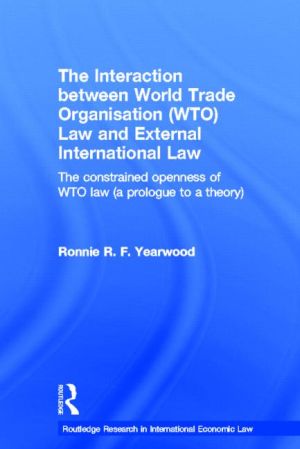
International legal scholarship is concerned with the fragmentation of international law into specialised systems such as trade, environment and human rights. Fragmentation raises questions about the inter-systemic interaction between the various specialised systems of international law. In the discourse on WTO law, three propositions – openness’, 'closure' and 'privileged' – have been put forward to explain the interaction between WTO law and external law.
This book engages with these debates about how international economic law interacts with other bodies of international law. Using ideas and theories from other spheres including sociology, literature and art, the book develops a new way of thinking about how WTO law interacts with external international law through the conceptual framework of ‘constrained openness’. The book argues that constrained openness offers a more nuanced way to think about how WTO law interacts with external law.